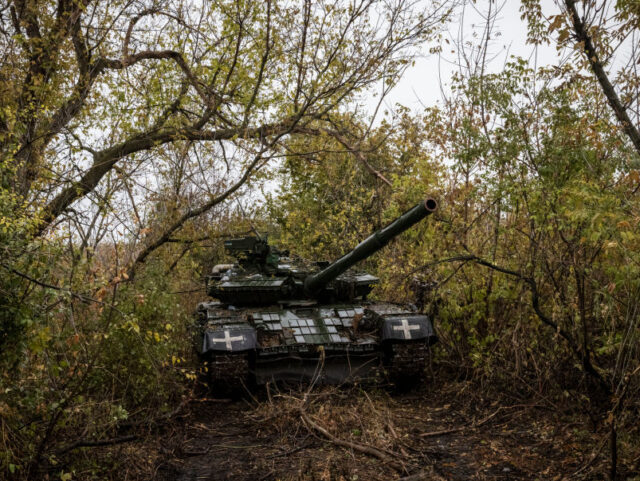The Ukraine War has reached a Great War-like stalemate, the man leading the Western-backed forces has taken to reading decades-old books on trench warfare, and there will “most likely” be no “deep and beautiful breakthrough”, a new interview purports to reveal.
The Commander-in-Chief of Ukraine’s Armed Forces made repeated references to the stalemate of the First World War in major comments on the state of the present war against Russia’s attempted occupation of the nation. The comments may alarm some in the West hoping for a rapid conclusion of the conflict, given the enormous expense to NATO governments so far and the implicit statement that without major developments, no progress is to be made by either side.
General Valery Zaluzhny made the comments in an interview with the globalist-centrist Economist magazine, publishing with it a nine-page personal essay on the war which concludes a “non-trivial” advance in Ukrainian capability is required, and saying “Just like in the first world war we have reached the level of technology that puts us into a stalemate”.
“There will most likely be no deep and beautiful breakthrough”, the General said.
Top Ukraine General Blames Counteroffensive Struggles on Lack of Western Fighter Jets and Weaponshttps://t.co/kz8eSKKPya
— Breitbart London (@BreitbartLondon) July 1, 2023
Dismissing the utility of the NATO-led planning for the counteroffensive which has at best stumbled and at worst failed, General Zaluzhny told the magazine Western doctrine is for highly mobile forces engaging in manoeuvre warfare. In the four months of counter-offensive so far at NATO-standard speeds of 30 kilometres (19 miles) progress a day, the general sardonically remarked his forces should have “reached Crimea, to have fought in Crimea, to return from Crimea and to have gone back in and out again”.
Instead, as the article dryly notes: “Five months into its counter-offensive, Ukraine has managed to advance by just 17 kilometres”, some ten miles. While the West has supplied large numbers of armoured cars and Main Battle Tanks, hopes of a rapid punch-through Russian lines evaporated as the degree to which they had successfully mined the approaches to their positions become clear.
Describing his process of turning away from the NATO doctrine expensively instilled into Ukraine’s new armies in a matter of mere months after he found it didn’t suit the war he was actually fighting, General Zaluzhny described how he turned to study the tactics of the First World War. The magazine recounts how the top officer claimed to have found a 1941 Russian analysis of Great War Battles, Breaching Fortified Defence Lines by a Soviet Major General in the library of the Ukrainian military college and started reading it.
He said: “And before I got even halfway through it, I realised that is exactly where we are because just like then, the level of our technological development today has put both us and our enemies in a stupor.”
While the analogue is not perfect, the general describes how new battlefield technology has left Ukraine and Russia locked in a Great War-trenches-like struggle. Drones and sensors give both sides unprecedented levels of information, making sneak attacks functionally impossible, meaning breakthroughs for either side never come. “The simple fact is that we see everything the enemy is doing and they see everything we are doing.”
General Zaluzhny told the publication a breakthrough on the level of China discovering gunpowder a millennia ago to break the deadlock, but rather than a whole new technology emerging, whichever side makes the better use of the new technologies already being deployed could gain the advantage.
While it is doubtless Ukraine has enjoyed a serious of major achievements including surviving — against Western expectations — the initial Russian invasion and subsequently pushing the Russian Black Sea Fleet eastwards from its traditional home in Sevastopol, it remains the case the front lines have been close to static for months. General Zaluzhny’s remarks are the latest from top Ukrainian figures alluding to this reality, including from President Zelensky himself who has repeatedly referred to progress being considerably slower than Ukraine’s Western sponsors hoping for.
As reported this week, Zelensky told his nation that the West had taken what victories his country had already achieved for granted, and in any case expected too much. He said on Tuesday: “The modern world is arranged in such a way that it gets used to success too quickly”, remarks which followed others in June. He had said then: “Whatever some might want, including attempts to pressure us, with all due respect, we will advance on the battlefield the way we deem best… Some people believe this is a Hollywood movie and expect results now. It’s not.”
Per estimates in June, the Ukrainian counteroffensive had retaken 50 square miles of territory occupied from Russia in three weeks of fighting, a figure what paled somewhat compared to the 10,000 square miles of Russian-occupied Crimea yet to be liberated.


